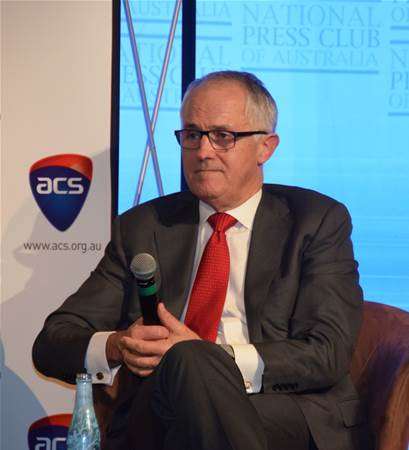Prime Minister Malcolm Turnbull has started repairing the Government’s fractured relationship with Australia’s science community, pledging to change its policies and put science “at the centre of the national agenda”.
In a wide-ranging address to the Prime Minister’s Prizes for Science dinner in Canberra, Turnbull threw his support behind science and its role in innovation and disruption.
He also said the Government had “to adopt the scientific method of developing one hypothesis after another, the hypothesis improving as we have more information and more experience, recalibrating it in the light of that and adjusting our policies, our approaches, as we achieve greater information.”
“That is absolutely critical,” he said.
“That's why we should never allow people to say, we as politicians, as governments, if we change a policy, never allow people to say, "You've backflipped, you've backtracked".
“The reality is that we can't guarantee that every policy will work.
“The most we can guarantee is that our policies are the best we can put together in light of the information we have at the time.
“If experience suggests that we should adjust them or change them, we will do so. If they don't work, we'll dump them. If they can be improved, we will improve them.
“If somebody else has done something that is even better than what we have thought of, then we will, recognising that plagiarism is the sincerest form of flattery; we will pinch it and use it.”
Turnbull appeared to foreshadow initiatives designed to encourage scientific discovery in schools.
“If we are to be a more scientifically literate community, as we must be, if we are to be more aware of the challenges of the world around us and prepared to engage them and investigate them in an honest and rigorous way, then we need great teachers, not just at the universities, not just for doctoral students, but in primary schools and secondary schools,” he said.
“Great teachers change people's lives and in doing so they can change the destiny of a nation.”
He also foreshadowed greater spending on science and related STEM – science, technology, engineering and mathematics – fields.
“We can't simply flick a switch to turn on an innovation nation,” Turnbull said.
“We have to fund and target programs with a clear policy rationale.
“If a program like the R&D tax incentive is successful, it should continue to be funded but we always have to test that it is meeting its objective.”
Turnbull reserved special praise for chief scientist Ian Chubb, whose five-year tenure comes to a close at the end of this year.
“You have been a champion of science and you have done so much to lift the esteem of scientists and science teachers around the country,” Turnbull said.
“Even when science has been under attack, you have never flinched and you have always stood up for science and its central importance in Australia, both today and in our future.
“The best accolade I can give Ian Chubb is to assure him that we're working to put into effect the very ambitious agenda he set us.
“We have to be – and we will be – a country that invests in science and puts it right at the centre of our national agenda.”
Turnbull’s comments on science come a week after he attempted to reset the policy narrative on innovation with a roundtable at Western Sydney University.
It is also the latest sector to experience a major policy shift under the Turnbull Coalition Government.
His predecessor, Tony Abbott, had been called “the most anti-science Prime Minister we’ve ever had”, owing to large funding cuts to scientific bodies such as the CSIRO, and the Government's stance on climate science and renewables.










